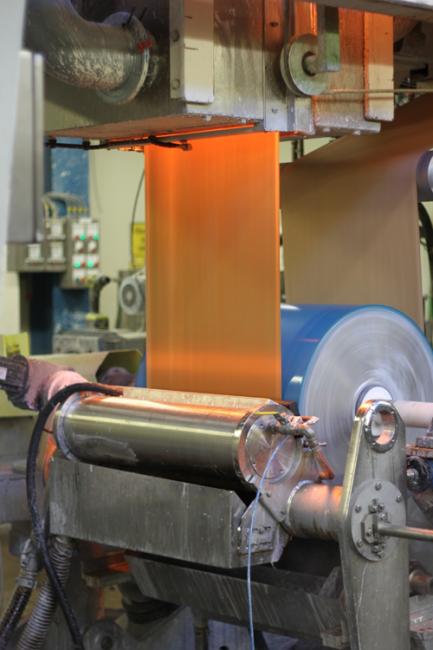Starch can replace normal plastic in food packaging
2018-06-11Eventually all petroleum-based material in food packaging will have to be replaced with bio-based material. Research done at Karlstad University shows that a mixture of starch and other polymers forms an equally effective protective barrier.
“Food packaging has to protect and extend the shelf life of food, and should also work during transport,” says Asif Javed, doctor in Chemical Engineering at Karlstad University. “To meet these demands, a protective barrier is needed in paper-based packing such as those used for juice or dairy.”
A protective barrier against water and oxygen
Paper-based food packaging needs a coating to prevent water or oxygen from penetrating the packaging and spoiling the foodstuff inside. Usually this protective coating is manufactured from petroleum-based plastic. For several decades, researchers have been trying to find a good bio-based material to replace fossil-based raw materials. Research done at Karlstad University shows that a mixture of lignin from wood and starch from for example potatoes or maize potentially can fulfil this function just as well as plastic.
“In my research, we used a mixture of starch and lignin to create a protective barrier that is up to scratch,” says Asif Javed. “If new materials are to be used, they have to be at least as good as or better than petroleum-based material – regarding extending the shelf life of food, as well as the cost and effectivity of manufacture and transport. I have also worked with biodegradable mixtures of starch and some petroleum-based macromolecules. Although such material is not 100% based on renewable resources, it has the important advantage of naturally degrading without leaving behind dangerous microplastics, should it end up in forests, lakes or oceans.”
Good prospects for future research
Today different bio-based alternatives are already being used in food packaging, but more research is needed to replace petroleum-based materials completely in the long term.
“I hope that we will be able to do more research in this area,” says Asif Javed. “In our region, there are good prospects for research on fibre-based processes and products in partnership with the industry. In my thesis project in the Vipp graduate school I worked with Billerud Korsnäs.”
Staying in Värmland
“In 2009, I came to Karlstad University from Pakistan to do my Master’s, without thinking that I’d stay on,” says Asif Javed. “Then I continued my doctoral studies in the Vipp graduate school, and now my wife, my daughter and I are settled here and we no longer plan on moving away from Karlstad.”
The research was done at the Vipp graduate school at Karlstad University and was funded by Billerud Korsnäs and the Knowledge Foundation. Vipp, the graduate school for value creation in fibre-based processes and products, is a collaboration between Karlstad University and a number of different business, particularly in the forestry sector in Sweden and Finland.


